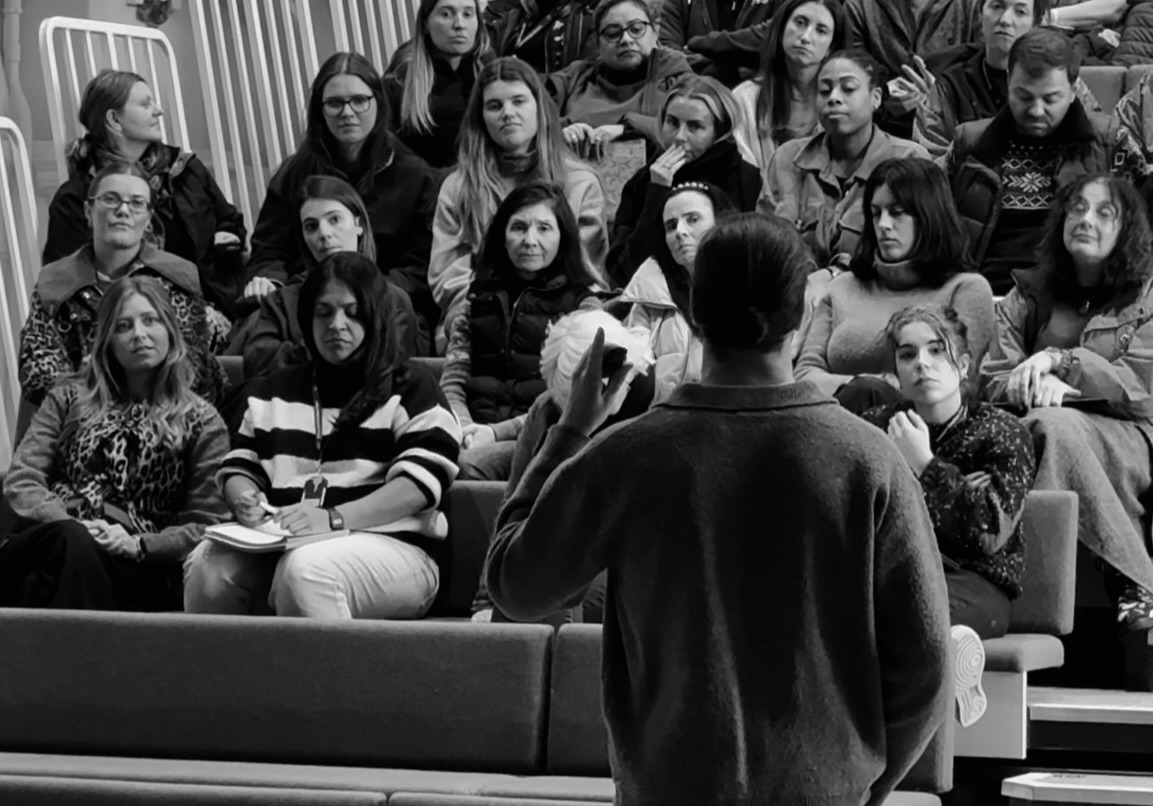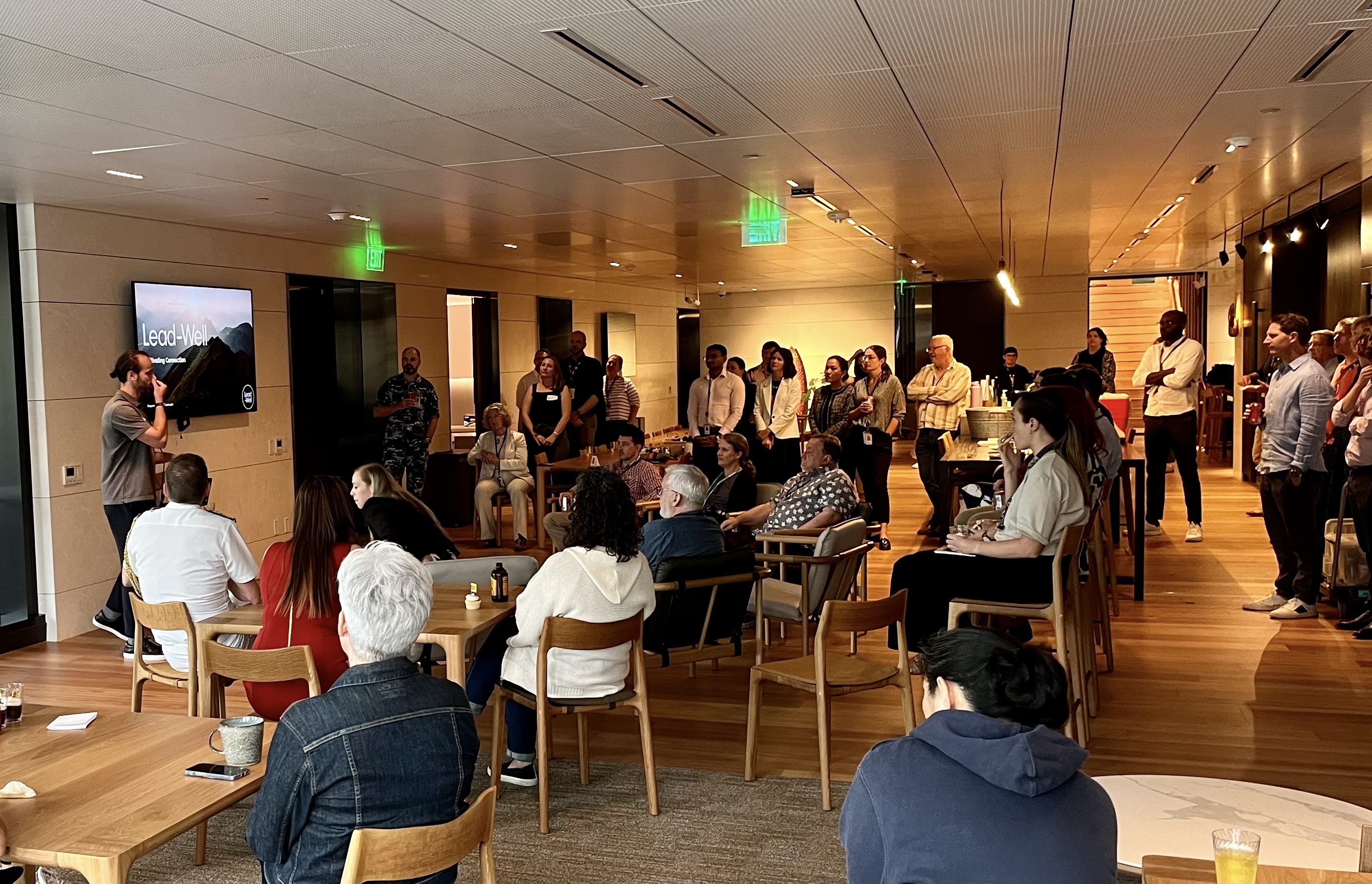Empathy in Action: The human case for connection at work

There’s a small town in the Appalachian Mountains called Jonesborough. Tucked away and humble, it’s earned a big title: the storytelling capital of the world. Which feels fitting, because when it comes to connection, and especially empathy, storytelling is where it all begins.
As Jimmy Neil Smith once said:
"We are all storytellers. We all live in a network of stories. There isn’t a stronger connection between people than storytelling."
Empathy, at its root, is exactly that^^^ The willingness to step into someone else’s story. Not to solve it, not to edit it; but to simply witness it.
I think we can all agree that the modern world is in desperate need of more of that.
The loneliness data you didn’t ask for (but might be compelled by?)
The World Health Organization reports that 1 in 6 people globally experience loneliness. A recent Gallup study across 140 countries found nearly 1 in 4 people feel "very or fairly lonely." In the UK, that number rises to nearly half of adults.
According to the US Surgeon General, chronic loneliness has the same impact on our health as smoking 15 cigarettes a day.
In short: meaningful human connection isn’t a nice-to-have. It’s a basic need and a birthright. And at work, it can be the difference between teams who flounder, and those who flourish.
What do curiosity, empathy, and collaboration have in common?
If you’re familiar with our ramblings on LinkedIn, you might have heard us talk about the equation: Curiosity + Empathy + Collaboration = Belonging.
It’s based on the notion that when we feel seen, heard, and valued, we’re more likely to show up authentically. And when people show up as themselves, without fear of judgment or needing to perform belonging, they feel better, relate better, and work better.
We also know that when leaders create a kind, inclusive environment, people stick around. Trust grows and teams open up – not just about work, but about who they are and how they work best.
But it only works if leaders go first, by sharing their own stories and missteps, owning their limitations, and making it safe for others to do the same. And this is where some of the best collaboration is birthed from: in the honest, sometimes uncomfortable, conversations that actually move things forward.
Lead-Well’s Founder Peter Seehusen often says, “You don’t need to be an expert in emotions to lead with empathy, you just need to be human enough to stay curious.”

The surprisingly practical side of empathy
Empathy isn’t a personality trait that’s only bestowed upon those of us who are born particularly emotionally attuned to others. It’s a practical skill. Which is actually great news because it means we can learn it, practice it, make some mistakes and learn it some more, and get better at it over time.
Empathy is what gives your team the confidence to speak up in meetings, navigate conflict respectfully (and resolve it productively!), or come to you when things go pear-shaped. It’s cultivated through presence, patience, courage, curiosity, and yes, a crucial sprinkle of vulnerability.
Renowned researcher Brené Brown captures it perfectly:
“No vulnerability, no empathy…if you share something with me that’s difficult, in order for me to be truly empathetic, I have to step into what you’re feeling. And that’s vulnerable.”
So what does empathy actually look like at work?
- Listening with your full attention (instead of mentally planning your reply or follow-up question to ensure there’s no awkward silences or ‘gaps’)
- Inviting deeper sharing by saying, “Yeah that sounds hard. Tell me more,” instead of, “Well here’s what I’d do.”
- Expressing compassion by relating with your own story of similar struggle (not to just speak, but to help the other feel less alone in their experience)
- Reflecting emotions: “It sounds like you’re feeling frustrated...”
- Asking, “How can I support you right now?”
- Holding space rather than jumping to fix
- Maintaining an open mind and heart, and avoiding judgement (shame is the antithesis of empathy)
- Respecting boundaries and letting silence breathe
Lead-Well in practice: Cultivating Connection
In times of change, empathetic leadership is essential. It helps leaders navigate resistance, maintain morale, and support their teams through uncertainty. We’ve witnessed time and time again the impact of this stuff, and so we’ve built a whole programme around it.
Our training on 'Cultivating Connection through Authenticity, Vulnerability, and Empathy' has helped leaders across a vast array of sectors build stronger and more connected teams, thrive through uncertainty, reduce stress, and support performance without burning people out.
We recently worked with the Embassy of Australia in Washington D.C., delivering a tailored session for 70+ staff from the Department of Foreign Affairs and Trade, Defence Australia, and Home Affairs. The #1 focus was building connection, trust, and psychological safety in high-pressure environments.
Natasha David, Head of Community, said:
“Peter was a great source of knowledge and inspiration. The training encouraged staff to be active in their care for colleagues… it received widespread praise for sparking open discussions on how to provide respectful and genuine support to colleagues.”
Since then, the Embassy team has been circulating monthly resources and learning moments to keep the conversation alive and the tools in practice.

You don’t need a high-rise corner office to lead
And you certainly don’t need a managerial name badge to practise empathy. We’re big believers in that leadership is influence, and we all have it! Whether you’re running a team or part of one, every interaction (within and beyond) the workplace is a chance to build connection.
In a world that often feels divided, empathy is our bridge back to one another. It truly turns workplaces into communities, and reminds us that whether in the Appalachian mountains or your Monday team meeting, connection begins the same way: with a story worth hearing.
Want help turning empathy into action?
That’s exactly what we do at Lead-Well, one story at a time. Get in touch to find out how we can support your team to create a culture of connection, collaboration and compassion.
*This article was Inspired in part by the 2025 World Happiness Report - Happiness Loves Company, which is probably more worthy of your morning reading over a cuppa, but we are very grateful to have you here nonetheless!*
Reach out
Let’s figure out what true support looks like for you and your team.
Contact us through the form below or at hello@leadwellcc.com
